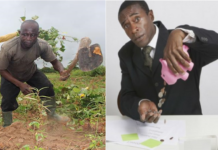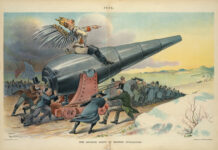Ta-Nehisi Coates does not believe in God.
In Between the World and Me, Coates suggests that God is merely an elixir. The idea of God is akin to a sweet potion intended to cure life’s ills. The magic of religion enters only to numb us from the pain of life.
The more pain we encounter—the greater the poverty, the deaths, the hurting—the more of that soothing good book we require.
So when life brings about the brutal murder of a young child, religion sweeps it under the rug as there is a time for everything. When misfortune strikes, theology reaches for the serenity to accept things one cannot change. If life brings upon hardship, religion tosses it aside as not more than one could bear.
By syrupy grace, there are magical solutions that neatly resolve every brutal blow.
Ta-Nehisi Coates rejects these quick fixes. He does not believe in God.
With swift refutations, he puts the tenets of Christianity and other religions to shambles. He writes that the meek didn’t inherit the earth. Rather “the meek were battered in West Baltimore, stomped out at Walbrook Junction, bashed upon on Park Heights, and raped in the showers of the city jail.”
He also rejects the notion that while flesh disintegrates into the ground, the spirit leaves the body to answer a higher calling.
“The soul did not escape. The spirit did not steal away on gospel wings. The soul was the body that fed the tobacco, and the spirit was the blood that watered the cotton, and these created the first fruits of the American gardens.”
When the body bleeds, the soul bleeds. They are one and unified.
But religion preaches the opposite. Coates asserts that this very separation is what prevents religious Black people from better protecting their bodies. “Disembodiment [is] the demon that pushed the middle-class Black survivors into aggressive passivity.”
When Black people believe their body is different from their soul, they are more forgiving about what happens to their body, since they believe their soul departs and is free to live some eternal life that is devoid of bodily harm. But when Black people the body and spirit absorb every bullet, they are more likely to protect their bodies.
For Coates, murder is pain. Hardship is pain. And we all must address it as such, in order that we can feel and understand pain in its harshest form.
Upon knowing the full pierce of a searing wound, witnessing the blood bath that results from a crocodile wrenching its fangs into a small child, we will so strike that crocodile with puissant vengeance and awaken our senses to its imminent threat such that the incident will surely never happen in the near future.
With passionate force, Ta-Nehisi Coates believes this arousal will partake in Black communities, if they free themselves of religion—if every time they feel pain, they stop taking the elixir.
Instead of resting their fate in the hands of a miracle, Coates nudges Black folk to come to terms with their recent history, which has lost the glamour of its ancient African namesake.
For the past 500 years, Black bodies have been are brutalized regularly. They were chained and sold from West African coasts; dumped overboard in the Atlantic Ocean, beaten, whipped, and lynched during American slavery; diseased, rotted, and jailed during Jim Crow and mass incarceration.
The truth of these experiences is truth, however sooty.
Ta-Nehisi Coates does not believe in God. And maybe for the better.
Maybe that is why when Coates feels pain, burdens, and brutality, he does not shirk them away to another world and assume that life would be better in some heaven.
Coates’s disbelief propels him to write about his life on this earth with extraordinary urgency. His disbelief allows him to feel life’s pains in their totality.
For him, murder is not something he can simply forgive and pray about.
If he were waiting for a world in some after life, he would not be so concerned with the abuses that Black people today face in America and beyond.
He writes about the pain he feels being Black in America, the fear he holds that his Black body might be violently abused by those who call themselves white men and women. He fears for his body today, yesterday, and in the future. He fears for his son’s body.
With magnetic focus, he highlights wars waged upon Black bodies.
“All our phrasing—race relations, racial chasm, racial justice, racial profiling, white privilege, even white supremacy—serves to obscure that racism is a visceral experience, that it dislodges brains, blocks airways, rips muscle, extracts organs, cracks bones, breaks teeth… The sociology, the history, the economic, the graphs, the charts, the regressions all land, with great violence, upon the body.”
Yet, Ta-Nehisi Coates does not absorb this pain in some God. He does not have that illusion to protect him. His fear is real and not imagined. It must be dealt with today and in this world.
His pain cannot be absorbed by some magical elixir by the name of God.
Coates understands, “I have no God to hold me up. And I believe that when they shatter the body they shatter everything.”











Nefetiti has captured an important part of Ta-Nehisi Coates’ book: Between the World and Me. Racism is not some philosophical term in passing. Africans were beaten, whipped, and lynched during American slavery; diseased, rotted, and jailed during Jim Crow and mass incarceration. “All our phrasing—race relations, racial chasm, racial justice, racial profiling, white privilege, even white supremacy—serves to obscure that racism is a visceral experience, that it dislodges brains, blocks airways, rips muscle, extracts organs, cracks bones, breaks teeth… The sociology, the history, the economic, the graphs, the charts, the regressions all land, with great violence, upon the body.” So when people chastise Blacks or Africans alleging that we pull the RACE CARD ever too often, they need to understand what RACISM actually is – not a passing fad. It’s real, it’s visceral and it’s brutal.
I Think I like the piece and how it was magnanimously captured. Great work done
Nefetiti is a maestro at Grandmother Africa. She has been a mentor for me for many years. I believe in God, but this piece, while enlightening us about Ta-Nehisi’s book, got me thinking more painfully about my unwarranted logic. Anyway, I am still growing.
I understand Coates’ point, it is much like how when most atheist say, they don’t believe in god when what they are really saying is; ‘I don’t believe in an interventionist god’. Black people in general need to understand that there are serious alternatives to Christianity, and that as usual, it turns out that our way is superior,to the Hell-Based-Fear-Gods.
In fact, this is why we need our own religions. From what i remember the ‘soul’ is nothing more than a dumbed down version of the Sa/Hu/Ba complex from Ancient Egyptian philosophy and there is pretty much nothing separating the 3 until death. Christianity creates two very separate bodies and causes the individual to place all of his/her investment in the intangible one, while letting the physical one suffer the maelstrom of life (specifically black life) believing it doesn’t matter anyway. Long story short, suffering will not get anyone to the Elysian fields.
Great Article, i would prefer people come to Coates’ conclusion than an Abramic’s.
Insightful, really! For me, for example, the work must begin with Africans reviving their own comprehensions of life and death. Africa must excise herself from Christianity and Islam and embrace her long tested traditions.
And it’s still alive and thriving! I heard somebody describe racism as a form of mental illness and was immediately sympathetic to that characterisation. The more I thought about it however, the less comfortable I felt about accepting that definition, as I knew that some clever wordsmith would soon pop up from the wood works, with a theoretical formulation that established the ‘madness theory’ of racism. Once accepted, it would become firmly embedded in the discourse and pretty soon, we’d be having to feel sorry for the racists, even as they continued to derive the full benefits of their ‘madness’. Has my cynicism gone over the top on this one?
Absolutely not. If there is one thing racists know, they know to win the propaganda debate. Sure, I think they have influenced some as far back as folks in Ghana. For a country – the Gold Coast – that had almost 85 percent of slave trading routes on the West African coast, it’s unimaginable that you would find people, having been schooled and employed in the USA, who cry foul whenever you warn policymakers in Africa to be wary of the west. I am not quite sure how they came to believe that these people have some good to deliver to Africa. These people have enslaved you, colonized you, brutalized your body, shattered your bones and you still feel that racism is a RACE CARD? The reason racists might win the debate is that we don’t talk enough about what happened in Ghana! We don’t teach our children about whites and the savagery they brought to the Gold Coast. Of course we don’t. because they mandate what we teach our children! Of course, they don’t even teach African Americans in public school about where they come from and what happened to them. That propaganda battle needs to be reigned in. We need to win the war of words. That’s why Ta-Nehisi’s book is absolutely on point with setting the record straight! Maybe when we use the word RACISM, we must add, at all times, the concomitant brutality. This is the part Africans today, because they were not taught in school, have no idea about. I have been even accused of reverse-racism! Yeah, right! As if I was the one lynching, throwing bodies overboard to make ships light, murdering bodies for looking at our women, breaking bones, gorging eyes, breaking teeth, scarring backs, chaining bodies to the bottom of cargo, to rot! But some Africans have imbibed the racists’ propaganda. So, we have work to do. To set that record straight!
Akosua M. Abeka I really should have met your even 10 years ago, when I still had fire in my belly and would take anybody on regarding these issues! You sound like a younger me with the fire still raging about the sheer iniquity of the whole thing. I’m glad you are out there and with others like Jonathan Nupkezah, Solomon Azumah-Gomez and many more carrying the torch, there might be hope for us yet. You write well and don’t mince words. Mighty powerful combination, keep up the good work. Oh by the way I am an admirer of Ta-Nehesi’s output. Quite impressive and very effective.
Akosua M. Abeka if we could pay attention to reality without any idiosyncracy, humbly and patiently observe; then I could see 99% of truth in it. However if there is a God contrarly to the piece then it will be a good information for striking a good balance of spiritual and mortal combat.
The writer’s Spirituality is that which enables him to discern and see RACISM as is. It’s about time we stopped being Religious. Spirituality is the ability to discern between right and wrong.